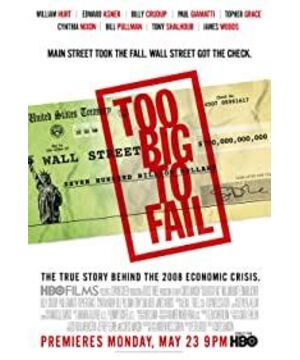watched last week
Today I took the high-speed train and thought about studying and continued to watch this
Watching "Guarding Yourself" next week
The second half of this passage makes the crisis formation chain very clear. Personally, I think it is easier to understand than a big bear:
1. Wall Street packaged up mortgages into mortgage-backed bonds, then disassembled them and sold them to investors, making them big bucks.
2. Then go to lobby the lending banks to get them to lend more money.
3. The lending bank originally lent money to people with good credit, but after growing their appetite, they lowered the standard, that is, the entry threshold, which is the so-called subprime loan.
4. People feel that they have borrowed a lot of money, and their confidence is multiplied. Only banks know that bonds are mortgaged with shit, and the risk is extremely high.
5. Therefore, the bank purchased insurance for it. Once the mortgage defaults, the public cannot repay it, and the insurance company will pay.
6. The bank is thus able to transfer risk while making a lot of money.
7. And AIG is one of the underwriting companies.
8. The property market crashes, mortgage-backed bonds collapse, AIG has to pay, and all insured banks are in a quagmire in the same day.
Lehman intensified AIG (AIA) while paying subprime mortgages.
The last part of the film is when the government decides to fund the health bank, the question is will it nationalize it?
(This piece is a little bit unclear, and I will focus on understanding this place when I brush next time)
Why is no one regulated? Because everyone benefits greatly from it.
Why did the government finally decide to help? Because the Great Depression of 1930 started with a stock market crash, but it was the credit collapse that dragged down the overall economy. If lessons are not learned this time, the consequences will be worse than the Great Depression.
What is the difference between the privatization system in the United States and the nationalization system in my country in terms of managing banks, supervising banks, and cleaning up the crisis?
stay in the pit
View more about Too Big to Fail reviews











